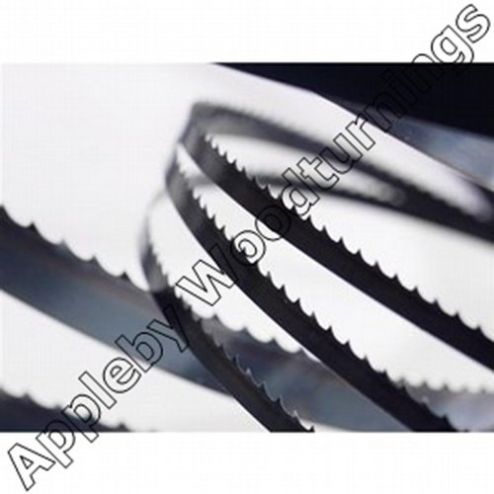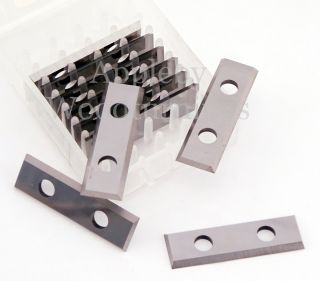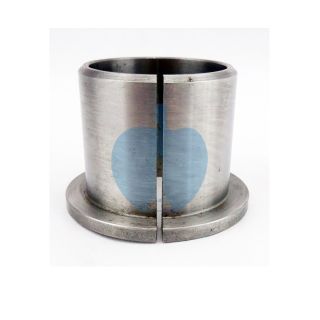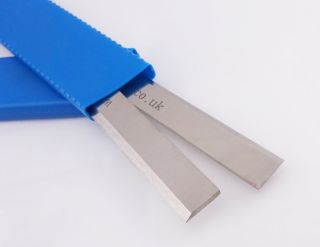88" Bandsaw Blade 1/4" 6tpi
Bulk Save Options
88" Bandsaw Blade 1/4" 6 Tpi
When choosing your new bandsaw blades, here are some key points to consider;
-
It is a common misconception that there such thing as a general purpose bandsaw blade
but unfortunately this is not the case
-
To achieve the best results possible, it is important to match the blade to the workpiece being machined
-
Using a high quality blade will transform your machine (We only use UK manufactured Dakin Flathers bands and coils)
-
The correct bandsaw depends on a few key elements;
1-Width Of Blade
2- Length Of Blade
3- Teeth Per Inch (TPI)
4- Tooth Configuration
1- When looking at the width of the blade, the following general rules apply;
- The thinner the blade, the tighter the curve/radius you can machine
- The wider the blade, the more straight line cut can be achieved
- All blades are wider at the tooth edge than at the back, to allow for clearance
2- The Length of the blade is determined by the machine model the bands are to fit on.
3- The teeth per inch (TPI) is critical to the thickness of the workpiece being machined
- The most optimum to give, - efficient cutting
- minimum feed pressure
- adequate gullet area for chip removal
- stable cutting
- material security
is 5 teeth per workpiece thickness.
This will give one tooth entering the workpiece, one exiting and three stable within
the workpiece, please note this is not always possible to achieve, but should be aimed
for)
- Too many teeth gives less area within the gullet for the chips to free themselves from
the timber, resulting in cutting pressures that cause binding, black cut edges and blade
breakages
- A great guide to choosing the correct TPI for your blade is;
10tpi- up to 20mm of material
8tpi - up to 30mm of material
6tpi - up to 40mm of material
4tpi - up to 60mm of material
3tpi - up to 100mm of material
- There are some blades available that have a vary-tooth set up, which allows for
variants in the timber thickness, please speak to our technical team regarding these.
4- The most widely used tooth formations and their uses are as follows;-
- Regular tooth- A conventional tooth used for cross-cutting, contour sawing,
sawing thin materials where a fine finish is required
- Skip Tooth – These are more widely spaced teeth which have a 0° rake angle
to help prevent clogging when cutting larger sections
- Hook Tooth- These have a 90° positive rake angle, a deeper gullet and larger
tooth which helps to feed into material giving a faster cutting rate
- Variable Pitch – These have altering sets of different sized teeth to provide a
smooth finish cut in varying sized timber
If you are struggling to choose or find the correct blade within the vast amount available
then please do not hesitate to contact our in house, time served machinists to discuss any
of the elements in choosing the correct blade for you.
| Price | £13.92 |
|---|---|
| Brand | Dakin Flathers |
| Blade Width | 1/4 Inch |
| Blade Length | 2235mm (88") |
| Teeth Per Inch (TPI) | 6 tpi |
| Appleby Warehouse | Appleby Woodturnings Limited Swadlincote, DE11 8JL Derbyshire GB 01283212384 |
2 units available |
|---|



 Available
Available 

 On request
On request 